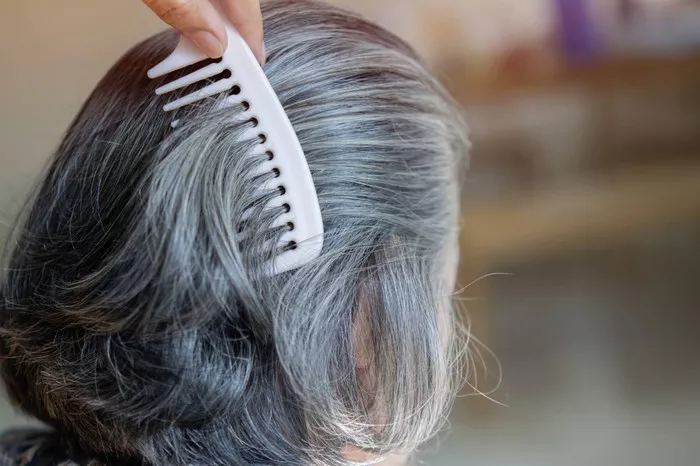Graying hair is often seen as a natural sign of aging, but recent research from Nagoya University in Japan suggests that a common antioxidant could help slow down or even prevent this process. Luteolin, a flavonoid antioxidant found in vegetables such as celery, broccoli, carrots, onions, and peppers, has been identified as a promising candidate for combating hair graying.
In a groundbreaking study led by Professor Masashi Kato and Takumi Kagawa, researchers focused on three antioxidants—luteolin, hesperetin, and diosmetin—to test their potential to prevent graying in mice. Remarkably, the mice treated with luteolin retained their dark fur, even as their counterparts’ fur turned gray. This was true whether luteolin was applied externally or ingested internally.
Professor Kato expressed his surprise, stating, “While we expected antioxidants to have anti-graying effects, only luteolin showed significant results. This suggests that luteolin may offer a unique way to prevent graying.” The study highlighted luteolin’s influence on endothelins, proteins involved in cellular communication. These proteins play a crucial role in maintaining the activity of melanocytes, the cells responsible for pigment production in hair. Luteolin’s ability to preserve endothelin expression helps prevent the decline of melanocyte function that causes hair to lose its color.
Interestingly, luteolin did not affect hair growth cycles, indicating that its primary impact is on pigmentation rather than hair growth or shedding. This specificity makes luteolin an intriguing prospect for those looking to address age-related hair graying without affecting other aspects of hair health.
These promising findings in mice, which closely mirror the human graying process, open up exciting possibilities for human applications. Luteolin, already available as both a supplement and topical treatment, could soon become a key ingredient in hair care products designed to preserve natural hair color. Further research could also expand luteolin’s use in broader age-related treatments, including potential applications for combating balding.
As the scientific community delves deeper into these results, luteolin’s role in slowing the graying process could mark a significant step forward in age-related hair care treatments.
Related topics:
- Styling Curtain Bangs with Short Hair: Expert Tips and Tricks
- The Best Winter Hair Care Solution: Henna Cream
- The Complete Scalp Care Routine for Healthier, Stronger Hair


